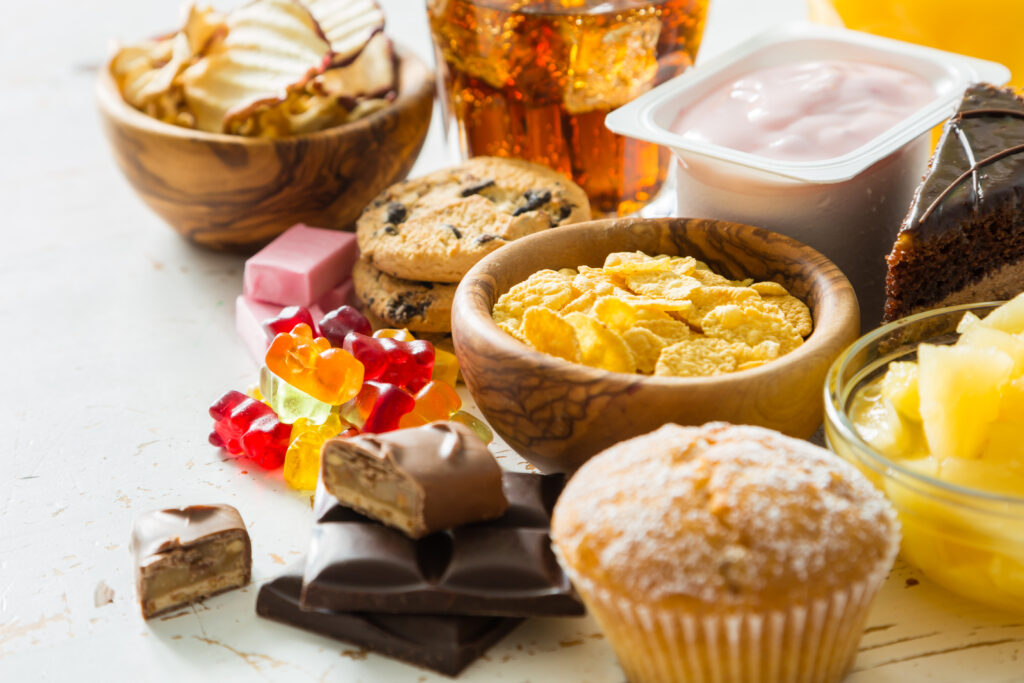
If you want to reduce your cancer risk, start by avoiding red meat and processed foods. They contain nitrates and nitrites, which increase cancer risk.
Processed meat includes cured and salted meats, such as bacon, ham, sausage, beef jerky and hot dogs. There is convincing evidence that eating them increases bowel cancer risk.
1. Processed Meat
Eating too much processed meat such as bacon, sausages and hot dogs can increase your risk of colorectal cancer. It also increases your risk of cardiovascular disease, obesity and diabetes. It may even lead to early death.
Regularly eating cured and salted meats like hot dogs, ham, luncheon meat, sourdough bread, deli meats, salami and beef jerky are high in cancer causing compounds. These include nitrosamines, heterocyclic amines and polycyclic aromatic hydrocarbons.
These chemicals are formed when meat is salted, cured or fermented and then smoked to preserve it or add flavor. They also form when meat is cooked at a high temperature.
A high intake of processed meat can increase your chances of getting colorectal cancer by 5% to 6%. This risk is higher for people who also smoke, consume too much alcohol and are overweight or inactive. It is also higher for men than women. Eating less processed meat and more whole foods is a good way to reduce your cancer risks.
2. Processed Vegetables
The term processed vegetables means that they have been washed, cut, peeled or sliced and packed in bags or containers for easy consumption. Popular examples include pre-washed salad kits, packaged baby carrots and jars of mandarin oranges and corn.
Red meat is a protein source that should be included in a balanced diet but eating too much increases your risk of developing bowel cancer. Foods that have been pickled or smoked contain nitrates which our bodies convert to N-nitroso compounds, known carcinogens.
A diet rich in fruits and vegetables is a major factor in cancer prevention. Choosing organic produce reduces your exposure to pesticides that are linked with increased cancer risks. Other cancer reducing steps include maintaining a healthy weight, not smoking and drinking alcohol in moderation. Around 80 to 90 percent of all malignant tumors are related to external factors that we have some control over, such as diet and lifestyle. The main risk factors for cancer are a high-fat diet, excessive alcohol intake, physical inactivity and being overweight.
3. Sugar
A high intake of sugar has been linked to obesity and chronic diseases like diabetes, which can increase cancer risk. Sugars in foods such as candy, cookies, soda, fruit juices, ice cream, pancake syrup, energy bars, packaged cakes, donuts and corn flakes should be avoided to reduce cancer risk.
When cooked at high temperatures, some carbohydrates produce a chemical known as acrylamide, which has been shown to cause tumours in rodents. However, studies on human populations have not found a link between acrylamide and cancers of the bowel, lung or breast.
A diet that includes a variety of fruits and vegetables is one of the best ways to lower cancer risks. In addition, eating organic foods can help prevent exposure to chemicals and pesticides that have been linked to some forms of cancer. To minimise your exposure to pesticides, choose unprocessed foods such as fresh produce or buy from a local market.
4. Alcohol
Alcohol is a cancer-causing food and is broken down into a chemical called acetaldehyde that damages DNA. This increases your risk of developing esophageal, liver, colorectal and breast cancer. It is also a contributing factor in the development of obesity which is another cancer risk factor.
Alcohol can also increase your risk of cancer because it blocks folate (a B vitamin). Folate has many important jobs, including helping build the molecule that carries genetic information, which is essential for cell division. Alcohol blocks folate’s absorption, which may explain why heavy drinking increases the risk of some cancers.
If you choose to drink alcohol, it is recommended that you consume a maximum of one drink per day for women and two drinks per day for men. It is important to note that consuming any amount of alcohol during or immediately after chemotherapy treatment can reduce the effectiveness of your chemotherapy. Talk to your cancer specialist for advice on this.





